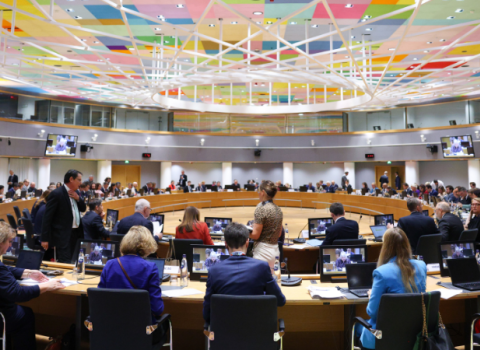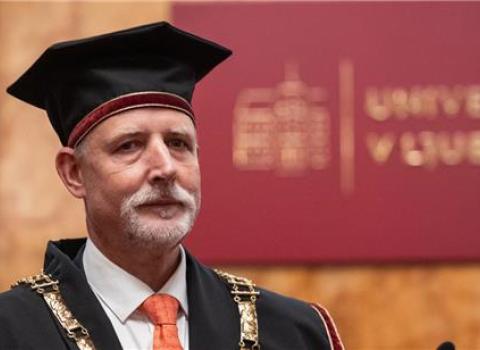As Minister of Research and Higher Education ever since President Nicolas Sarkozy formed his first government back in June 2007, Valerie Pécresse was a symbol of stability in a cabinet that has been shuffled 17 times in four years.
In this time, Pécresse has masterminded a deep-rooted reform that has seen 90 per cent of France’s 85 universities acquire autonomous status. The unrest promised by some students and academics did not materialise, and critics were muted.
Pécresse was responsible for “Plan Campus” under which €5 billion from a sale of shares in the state owned utility company EDF was pumped into modernising university infrastructures and student housing. She was also overseeing another programme which is investing €22 billion of the €35 billion “Grand Emprunt” loan - raised two years ago to support the economy after the financial crisis - into in research and university projects.
So Pécresse’s replacement by Minister for European Affairs, Laurent Wauquiez on June 29th came as a political surprise.
Critical time for university reforms
Why would Sarkozy replace one of the only ministers whose achievements are not challenged by political opponents or the media? And why do it at such a critical time?
The Research Ministry is currently in the process of selecting ten universities that will share a €7.7 billion fund to upgrade their facilities and faculties in a bid to compete in the premier league of world universities (a process known as Idex). It is also spending €3 billion on 100 laboratory projects (Labex) and investing €340 million on new research equipment (Equipex). And this is not to mention the coming debate about the proposed increase in the European research budget to €80 billion for 2014-2020.
But with Finance Minister Christine Lagarde moving to Washington to head the International Monetary Fund, Sarkozy was forced to replace her by the Budget Minister Francois Baroin - who happens to be key to maintaining a difficult relationship with the Gaullists. And in order to keep a close eye on his new, ambitious and independent Finance Minister, Sarkozy needed the faithful Pécresse to take over at the Budget Department.
Youth, education, research at heart of presidential election
While Wauquiez, an historian by training, has little experience of the complex governance of France’s universities and public research institutions, he has proven skills in communication. And at 37, he is seen as young enough to create links to a student population that is also targeted by Socialist Party contenders to the presidential crown, who have put youth, education and research at the cornerstone of their campaigns.
Wauquiez’s mission is therefore clear. He will have to “sell” the reforms undertaken by Pécresse, while avoiding anything that may derail the process. But this may prove harder than the current consensus on Pécresse’s reforms would imply.
First, student organisations are expressing more and more disappointment, particularly over “Plan Campus” which was supposed to improve their living and working conditions. The government handed responsibility for renewal of university infrastructure and student housing to public-private partnerships. But this has slowed the process. Only €70 million of the €5 billion raised by the EDF share sale had made its way to concrete projects by the end of 2010.
Wauquiez’s first public statement as research minister was to explain that, “student life and housing were on top of his priorities.” But his financial room for manoeuvre here is limited.
Campus of excellence
Another risk, may come from the €22 billion from the Grand Emprunt, with some seeing it as an attempt to create a two tier system. Just few days after promotion, Wauquiez had to announce the first three of the ten universities that will share in the €7.7 billion “Campus of Excellence” programme.
The international selection committee chaired by former Lausanne University President Jean-Marc Rapp favoured international cooperation in life sciences at Strasbourg University, a project that was awarded €1.2 billion; the merger of the Grandes Ecoles engineering school with the university in Bordeaux; and a bid from Paris Science & Letters to amalgamate 13 public research institutions, including the Ecole Normale Supérieure and College de France, creating a single institution with 2,500 professors and 15,000 - 20,000 students.
Naturally the losers are disappointed. Projects in Grenoble and Lyon still have their chance in a second round at the end of September, but the bid by Ecole Polytechnique at Saclay was not even shortlisted.
Critics are making Wauquiez’s life difficult, charging that campuses like Strasburg tend to attract most investment because they are already well-served by grants from the Labex and Equipex programmes. But the very logic of these investments is to help some French universities to become more competitive and climb in the international rankings. And not all of them can make it into the top 100.
There are also claims that exceptional spending from Plan Campus, Idex, Labex and Equipex is a smokescreen, hiding the fact that increases in research budgets are less generous than they appear. Recently, Groupe Marc Bloch, a think tank involving 59 university presidents, calculated that rather than an increase of €1 billion per year as promised in 2007, the actual increase in the research and higher education budget was actually only €1.7 billion over the four years from 2007 - 2011.
Downplay the critics
Wauquiez’s role will be to downplay these critics. He may be helped by the fact that money promised from exceptional budgets is only just starting to flow, two years after the financial crisis, but only one before the presidential election.
As a former minister of European Affairs he might also be buttressed by the renewed ambition for European research, and support the European Commission’s proposal to increase the R&D budget to €80 billion, in a bid to prove Sarkozy is truely research-friendly.





 A unique international forum for public research organisations and companies to connect their external engagement with strategic interests around their R&D system.
A unique international forum for public research organisations and companies to connect their external engagement with strategic interests around their R&D system.